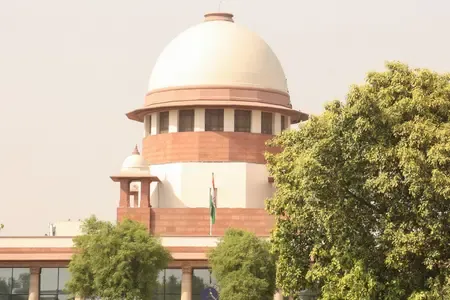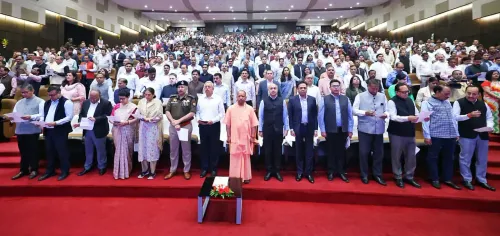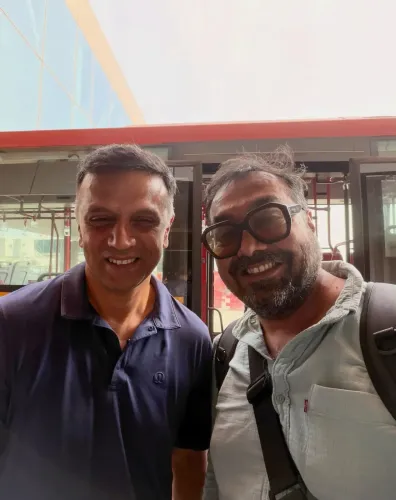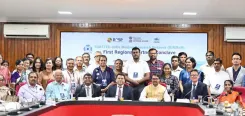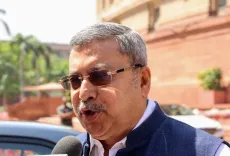In Response to TN CM Stalin, Jaishankar Advocates NEP

Synopsis
Key Takeaways
- Jaishankar advocates for NEP amidst criticism.
- NEP aims to prepare youth for tech challenges.
- Focus on tradition and technology in education.
- Significant funding disparities in language development.
- Commitment to Tamil language and culture emphasized.
Varanasi, Feb 23 (NationPress) External Affairs Minister S. Jaishankar expressed on Sunday that the New Education Policy (NEP) is a crucial initiative aimed at equipping the youth to tackle the impending technological challenges of the modern era.
Jaishankar's endorsement of the NEP arises amidst criticism from Tamil Nadu Chief Minister M.K. Stalin, who has asserted that the policy would set the state back by 2,000 years.
During his address at the Kashi Tamil Sangamamam 3.0 in Varanasi, Jaishankar emphasized the government's commitment to cultivating talent while balancing both tradition and technology, attributing the advancements in fields such as space, AI, and drones to the NEP.
He noted that numerous universities have initiated drone programs, illustrating NEP's role as a catalyst in fostering young talent and positioning India as a global technology hub.
Jaishankar mentioned that the Narendra Modi administration is eager to gather public feedback on its initiatives, including those aimed at startups, particularly from rural regions, with a focus on supporting women.
“I will convey the message to the relevant parties to amplify communication regarding Central programs that benefit rural populations, not just in Tamil Nadu but across the nation,” he stated.
Previously, CM Stalin reaffirmed the state's rejection of the NEP, even if the Union government proposed financial incentives amounting to Rs 10,000 crore.
Stalin criticized the NEP’s three-language policy, accusing the Union government of attempting to impose Hindi on Tamil speakers.
He declared that his administration would not accept any actions that threaten the state’s identity or the status of the Tamil language.
Addressing disparities in language funding, the Chief Minister pointed out that although Tamil is spoken by nearly eight crore individuals, the Central government allocated merely Rs 74 crore for its development. In contrast, Sanskrit, which is spoken by a mere few thousand, received an allocation of Rs 1,488 crore.
Tamil Nadu has been in conflict with the Central government over the NEP, with the ruling DMK alleging that the Union Education Ministry is withholding critical funding for essential educational initiatives.
Deputy Chief Minister Udhayanidhi Stalin reiterated the state's commitment to its traditional two-language policy, promoting only Tamil and English in its educational framework.
On Friday, Union Education Minister Dharmendra Pradhan criticized Tamil Nadu CM Stalin regarding the three-language NEP policy, indicating that it was inappropriate for the state to interpret NEP 2020 with a narrow perspective and misrepresent progressive educational reforms as threats to uphold their political agenda.
He also reiterated that Prime Minister Narendra Modi's government is fully dedicated to advancing and globalizing the rich Tamil culture and language.

